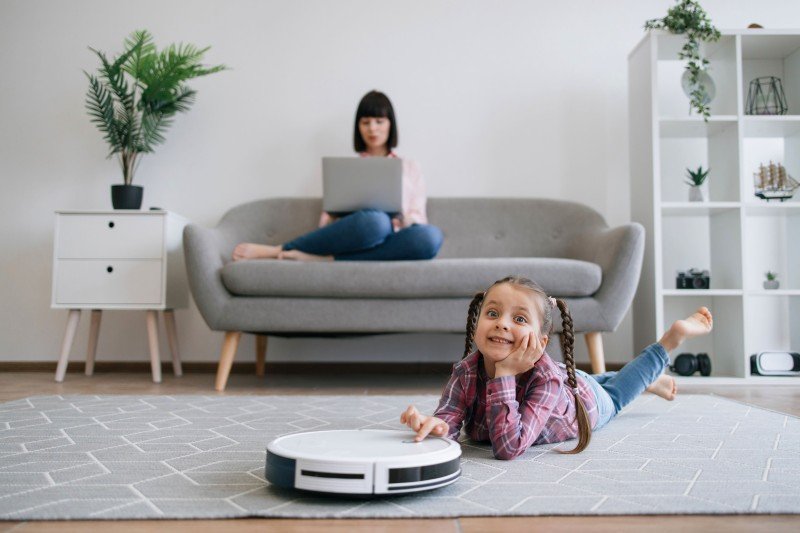Understanding Floor Robots: The Future of Home Cleaning
In current years, technological advancements have considerably changed the landscape of home cleaning. Among the most notable developments is the floor robot, a gadget that has actually quickly gained popularity for its benefit and efficiency. This short article aims to explore the various elements of floor robots, their functionality, benefits, popular designs, and some often asked concerns to help consumers make informed decisions.
What is a Floor Robot?
A floor robot, frequently referred to as a robotic vacuum, is an automated gadget created to browse floors and remove dirt, dust, and particles. Unlike standard vacuum, floor robots run autonomously, offering a hassle-free cleaning experience. These smart devices utilize sensing units, mapping technologies, and advanced algorithms to clean various surface areas, consisting of hardwood, tile, and carpet.
How Do Floor Robots Work?
Floor robots run through a mix of software and hardware components. Here are the essential features that enable their performance:
1. Sensing units
- Obstacle Detection: Floor robots have integrated sensors that help them spot challenges, enabling them to navigate around furnishings and prevent falls.
- Cliff Sensors: These prevent the robot from falling down stairs or ledges by recognizing modifications in elevation.
2. Navigation and Mapping
- Visual Mapping: Some advanced designs utilize electronic cameras and laser technology to create in-depth maps of the cleaning area.
- Simultaneous Localization and Mapping (SLAM): This method helps the robot track its place and efficiently plan its cleaning path.
3. Cleaning Mechanisms
- Suction Power: Most robotic vacuums use a suction system to capture dirt and dust, which is then saved in an onboard dustbin.
- Brushing Systems: Many designs come geared up with rotating brushes or mops for improved cleaning abilities, especially on carpets or difficult surfaces.
4. Smart Features
- Connection: Many floor robots support Wi-Fi connection, enabling users to control them via mobile phone apps or smart home systems.
- Scheduling: Users can arrange cleaning times, ensuring their homes are clean even when they're not there.
5. Autonomous Charging
- Self-Docking: Most robots immediately return to their charging station once their battery runs low, guaranteeing they're constantly all set to clean.
Advantages of Using a Floor Robot
The adoption of floor robots features many benefits that make them appealing to users:
1. Convenience
Floor robots can clean up while users take care of other jobs, enabling for multitasking and time-saving.
2. Increased Efficiency
Robotic vacuums frequently cover more ground in less time compared to traditional techniques, thanks to their methodical cleaning patterns.
3. Consistent Cleaning Routine
Users can set up routine cleanings, guaranteeing that their homes remain clean without requiring day-to-day intervention.
4. Ease of access
Robotic vacuums can quickly access hard-to-reach areas, such as under furnishings or in tight spaces.
5. Advanced Features
Numerous models come equipped with features like voice control and app combination, boosting usability and availability.
Popular Floor Robots
When considering a floor robot, various brands and designs accommodate various requirements and spending plans. Here's a quick summary of some leading alternatives:
| Brand | Model | Key Features | Price Range |
|---|---|---|---|
| iRobot | Roomba i7+ | Smart mapping, self-emptying dock | ₤ 600 - ₤ 800 |
| Roborock | Roborock S7 | Sonic mopping, barrier avoidance | ₤ 500 - ₤ 700 |
| Neato | Neato D7 | D-shape style, advanced suction | ₤ 600 - ₤ 800 |
| Ecovacs | Ecovacs Deebot T8 | Mopping function, advanced mapping | ₤ 600 - ₤ 800 |
| Shark | Shark IQ Robot | Self-emptying base, home mapping | ₤ 400 - ₤ 600 |
(Note: Prices may vary based on retailers and ongoing promos.)
Frequently Asked Questions (FAQs)
1. Are floor robots reliable on carpets?
Yes, most contemporary floor robots are developed to tidy various surfaces, including carpets. robot vacuum cleaner on sale with strong suction and rotating brushes are especially reliable at choosing up family pet hair and ground-in dirt.
2. How typically should I run my floor robot?
This depends upon your home's needs. For homes with family pets or high foot traffic, daily or every other day cleaning may be beneficial. For quieter families, running the robot when a week may be sufficient.
3. Can I manage my floor robot remotely?
Lots of floor robots include mobile phone apps that permit users to control their devices remotely, schedule cleansings, and monitor efficiency.
4. Do I need to empty the dustbin often?
A lot of robots require routine emptying of the dustbin, particularly in homes with family pets or heavy soil. Nevertheless, some designs offer self-emptying capabilities, which decrease user involvement.
5. Are floor robots ideal for all kinds of floor covering?
Many floor robots work on numerous surface areas, consisting of hardwood, tile, and low-pile carpets. However, some may carry out better on specific surface areas, so it's important to select a model fit to your home's requirements.
As homes continue to welcome technology, floor robots have emerged as vital cleaning companions, supplying convenience, efficiency, and advanced functions. Comprehending their functionalities, benefits, and readily available models permits customers to choose the ideal floor robot to fulfill their specific cleaning needs. By purchasing this ingenious technology, house owners can ensure their home stay tidy and comfortable with minimal effort.

